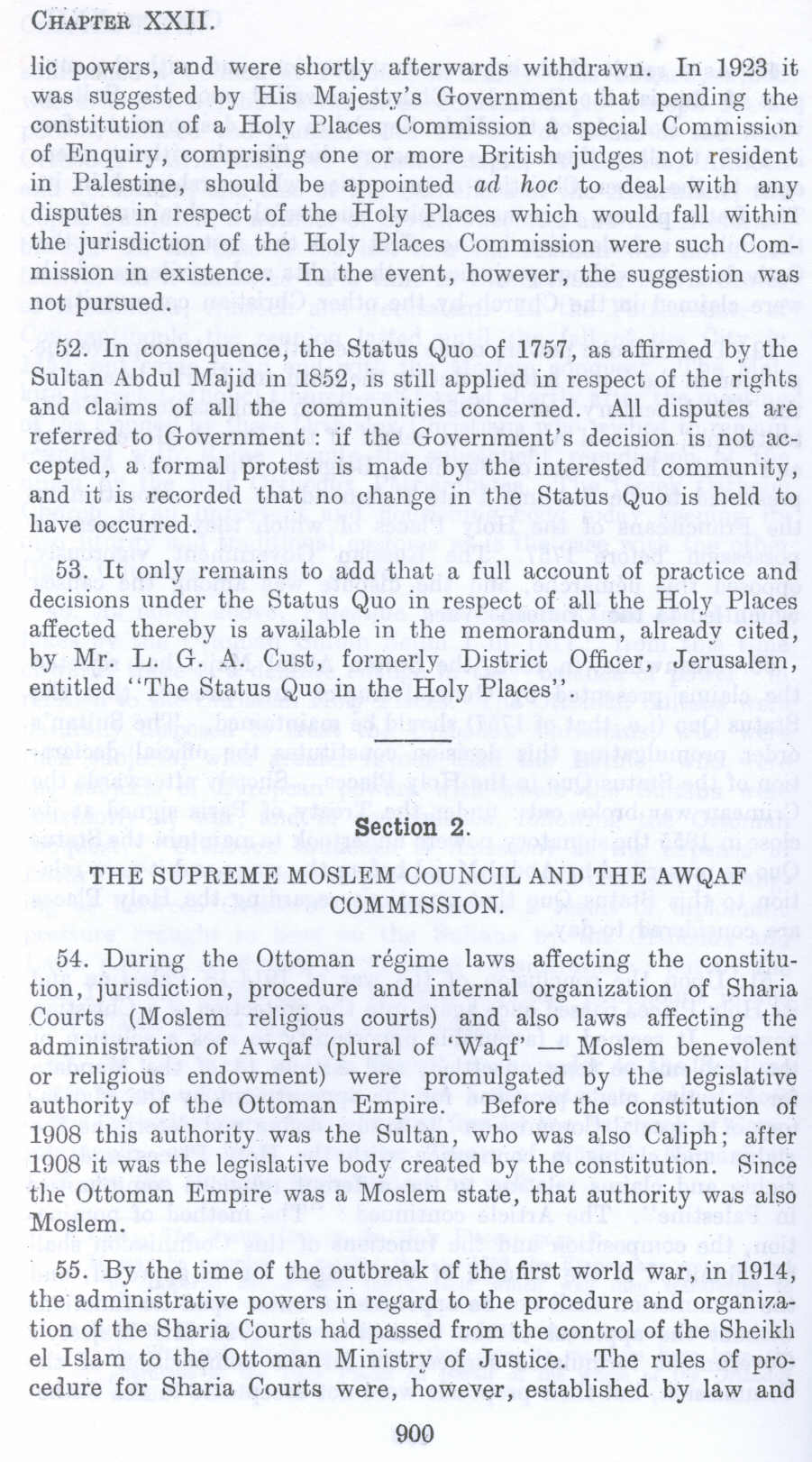| Prev | Next |  |
| Prev | Next |
| PalestineRemembered | About Us | Oral History | العربية | |
| Pictures | Zionist FAQs | Haavara | Maps | |
| Search |
| Camps |
| Districts |
| Acre |
| Baysan |
| Beersheba |
| Bethlehem |
| Gaza |
| Haifa |
| Hebron |
| Jaffa |
| Jericho |
| Jerusalem |
| Jinin |
| Nablus |
| Nazareth |
| Ramallah |
| al-Ramla |
| Safad |
| Tiberias |
| Tulkarm |
| Donate |
| Contact |
| Profile |
| Videos |
The Supreme Muslim Council and The Waqf Commission in Palestine before 1948 (Nakba), British Mandate: A Survey of Palestine: Volume II - Page 900. Chapter XXII: Community And Religious Affairs: Section 2: |
Disclaimer
The above documents, article, interviews, movies, podcasts, or stories reflects solely the research and opinions of its authors. PalestineRemembered.com makes its best effort to validate its contents.


Post Your Comment
*It should be NOTED that your email address won't be shared, and all communications between members will be routed via the website's mail server.
lie powers, and were shortly afterwards withdrawn. In 1923 it was suggested by His Majesty's Government that pending the constitution of a Holy Places Commission a special Commission of Enquiry, comprising one or more British judges not resident in Palestine, should be appointed ad hoc to deal with any disputes in respect of the Holy Places which would fall within the jurisdiction of the Holy Places Commission were such Commission in existence. In the event, however, the suggestion was not pursued.
52. In consequence, the Status Quo of 1757, as affirmed by the Sultan Abdul Majid in 18.52, is still applied in respect of the rights and claims of all the communities concerned. All disputes are referred to Government : if the Government's decision is not accepted, a formal protest is made by the interested community, and it is recorded that no change in the Status Quo is held to have occurred.
53. It only remains to add that a full account of practice and decisions under the Status Quo in respect of all the Holy Places affected thereby is available in the memorandum, already cited, by Mr. J.J. G. A. Cust, formerly District Officer, Jerusalem, entitled "The Status Quo in the Holy Places".
Section 2.
THE SUPREME MOSLEM COUNCIL AND THE AWQAF COMMISSION.
54. During the Ottoman regime laws affecting the constitution, jurisdiction, procedure and internal organization of Sharia Courts (Moslem religious courts) and also laws affecting the administration of Awqaf (plural of 'Waqf' - Moslem benevolent or religious endowment) were promulgated by the legislative authority of the Ottoman Empire. Before the constitution of 1908 this authority was the Sultan, who was also Caliph; after HJOS it was the legislative body created by the constitution. Since the Ottoman Empire was a Moslem state, that authority was also Moslem.
55. By the time of the outbreak of the first world war, in 1914, the administrative powers in regard to the procedure and organization of the Sharia Courts had passed from the control of the Sheikh el Islam to the Ottoman Ministry of Justice. The rules of procedure for Sharia Courts were, however, established by law and
900